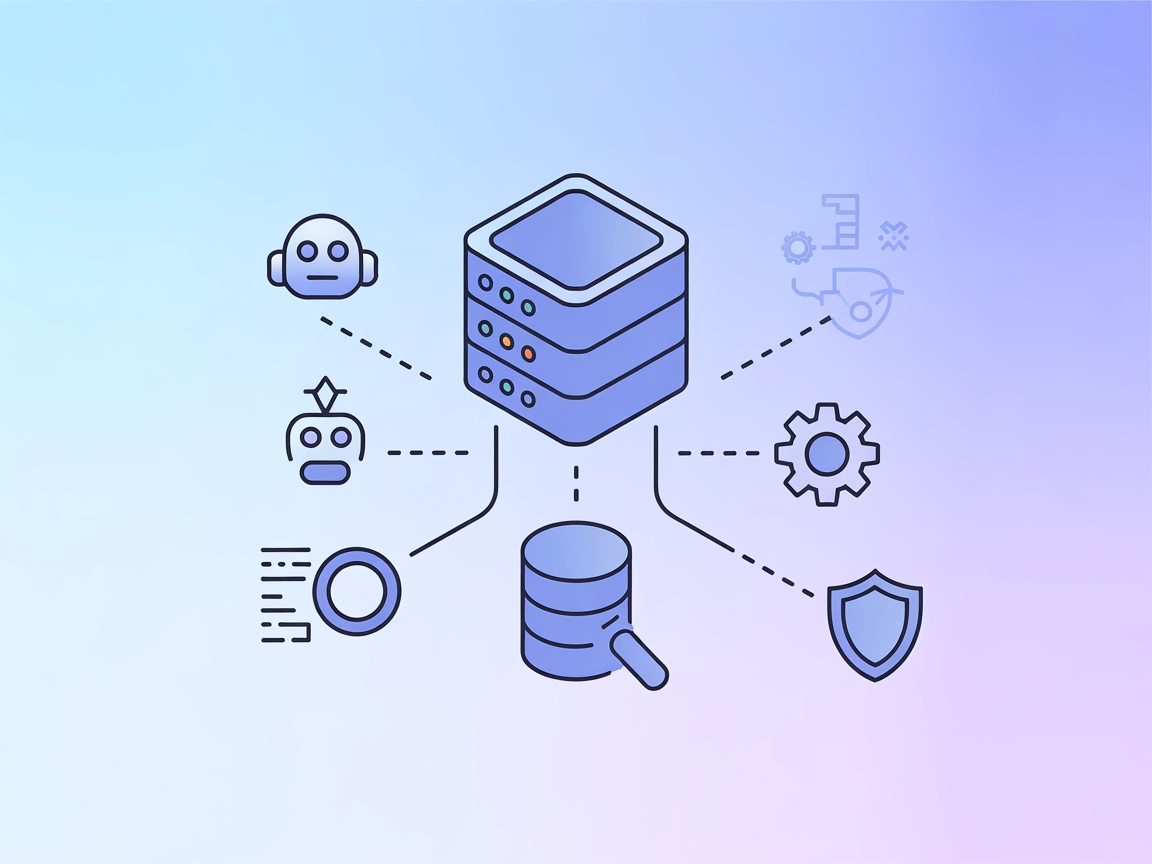
OpenSearch MCP Server Integration
The OpenSearch MCP Server enables seamless integration of OpenSearch with FlowHunt and other AI agents, allowing programmatic access to search, analytics, and c...
FlowHunt provides an additional security layer between your internal systems and AI tools, giving you granular control over which tools are accessible from your MCP servers. MCP servers hosted in our infrastructure can be seamlessly integrated with FlowHunt's chatbot as well as popular AI platforms like ChatGPT, Claude, and various AI editors.
The Elasticsearch MCP Server is a Model Context Protocol (MCP) implementation that enables seamless interaction with Elasticsearch and OpenSearch clusters. Serving as a bridge between AI assistants and these powerful search engines, it allows users to perform advanced search queries, analyze indices, and manage clusters programmatically. By exposing a suite of tools, the server empowers developers to automate document searches, index management, and cluster operations directly from their AI-driven workflows. This enhances productivity in tasks such as data exploration, monitoring, and content retrieval, making the Elasticsearch MCP Server an invaluable asset for integrating real-time search and analytics capabilities into AI development environments.
(No prompt templates were mentioned in the repository. Section left intentionally blank.)
(No explicit MCP resources are listed in the available documentation or repository files.)
windsurf.json or equivalent).mcpServers section:{
"mcpServers": {
"elasticsearch-mcp": {
"command": "elasticsearch-mcp-server",
"args": ["serve"]
}
}
}
Securing API Keys Use environment variables to secure connection details:
{
"elasticsearch-mcp": {
"command": "elasticsearch-mcp-server",
"args": ["serve"],
"env": {
"ELASTICSEARCH_URL": "${ELASTICSEARCH_URL}",
"ELASTICSEARCH_API_KEY": "${ELASTICSEARCH_API_KEY}"
}
}
}
mcpServers section:{
"elasticsearch-mcp": {
"command": "elasticsearch-mcp-server",
"args": ["serve"]
}
}
Securing API Keys
{
"elasticsearch-mcp": {
"command": "elasticsearch-mcp-server",
"args": ["serve"],
"env": {
"ELASTICSEARCH_URL": "${ELASTICSEARCH_URL}",
"ELASTICSEARCH_API_KEY": "${ELASTICSEARCH_API_KEY}"
}
}
}
cursor.json configuration file.{
"mcpServers": {
"elasticsearch-mcp": {
"command": "elasticsearch-mcp-server",
"args": ["serve"]
}
}
}
Securing API Keys
{
"elasticsearch-mcp": {
"command": "elasticsearch-mcp-server",
"args": ["serve"],
"env": {
"ELASTICSEARCH_URL": "${ELASTICSEARCH_URL}",
"ELASTICSEARCH_API_KEY": "${ELASTICSEARCH_API_KEY}"
}
}
}
{
"mcpServers": {
"elasticsearch-mcp": {
"command": "elasticsearch-mcp-server",
"args": ["serve"]
}
}
}
Securing API Keys
{
"elasticsearch-mcp": {
"command": "elasticsearch-mcp-server",
"args": ["serve"],
"env": {
"ELASTICSEARCH_URL": "${ELASTICSEARCH_URL}",
"ELASTICSEARCH_API_KEY": "${ELASTICSEARCH_API_KEY}"
}
}
}
Using MCP in FlowHunt
To integrate MCP servers into your FlowHunt workflow, start by adding the MCP component to your flow and connecting it to your AI agent:

Click on the MCP component to open the configuration panel. In the system MCP configuration section, insert your MCP server details using this JSON format:
{
"elasticsearch-mcp": {
"transport": "streamable_http",
"url": "https://yourmcpserver.example/pathtothemcp/url"
}
}
Once configured, the AI agent is now able to use this MCP as a tool with access to all its functions and capabilities. Remember to change “elasticsearch-mcp” to whatever the actual name of your MCP server is and replace the URL with your own MCP server URL.
| Section | Availability | Details/Notes |
|---|---|---|
| Overview | ✅ | Overview available in README.md |
| List of Prompts | ⛔ | No prompt templates found |
| List of Resources | ⛔ | Not listed in repo |
| List of Tools | ✅ | Tools listed in README.md |
| Securing API Keys | ✅ | .env.example and JSON env example provided |
| Sampling Support (less important in evaluation) | ⛔ | Not mentioned |
The Elasticsearch MCP Server provides excellent tooling for integrating search and index management into AI workflows and has solid documentation for setup and usage. However, the lack of prompt templates, explicit MCP resources, and no mention of Roots or Sampling slightly limits its out-of-the-box capabilities for more advanced agentic workflows.
| Has a LICENSE | ✅ (Apache-2.0) |
|---|---|
| Has at least one tool | ✅ |
| Number of Forks | 34 |
| Number of Stars | 162 |
It is a Model Context Protocol server that enables AI agents and workflows to interact directly with Elasticsearch or OpenSearch clusters. You can search documents, manage indices, and automate cluster operations from within FlowHunt or any supported client.
The server offers tools for listing and managing indices, running document searches, retrieving index details, and making general HTTP API requests to Elasticsearch/OpenSearch endpoints.
Always use environment variables (such as ELASTICSEARCH_URL and ELASTICSEARCH_API_KEY) in your MCP server configuration. This keeps sensitive information out of code and config files.
Yes, the server is compatible with both Elasticsearch and OpenSearch clusters, supporting a wide range of API operations for each.
Popular use cases include real-time search within AI workflows, index management, automated monitoring of cluster health, analytics, and integrating advanced search capabilities into your AI-powered apps.
Enable your AI agents to search, analyze, and manage Elasticsearch/OpenSearch clusters programmatically. Start building smarter, search-powered workflows today.

The OpenSearch MCP Server enables seamless integration of OpenSearch with FlowHunt and other AI agents, allowing programmatic access to search, analytics, and c...

The Meilisearch MCP Server bridges AI assistants with your Meilisearch instance, enabling seamless database operations, index management, settings configuration...

The Model Context Protocol (MCP) Server bridges AI assistants with external data sources, APIs, and services, enabling streamlined integration of complex workfl...
Cookie Consent
We use cookies to enhance your browsing experience and analyze our traffic. See our privacy policy.